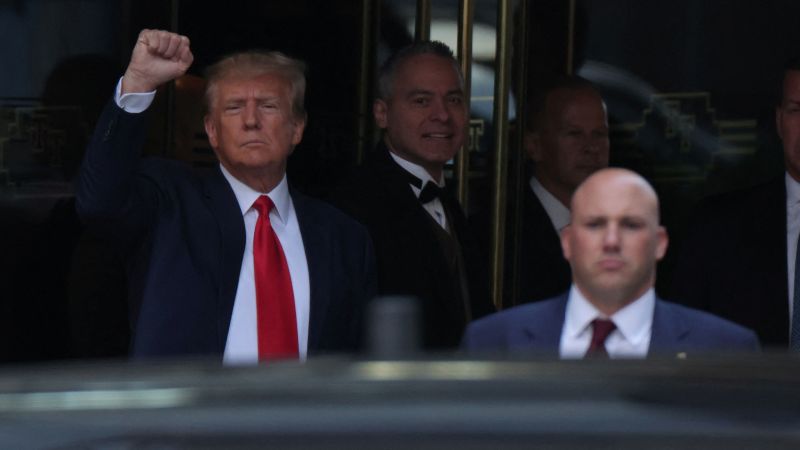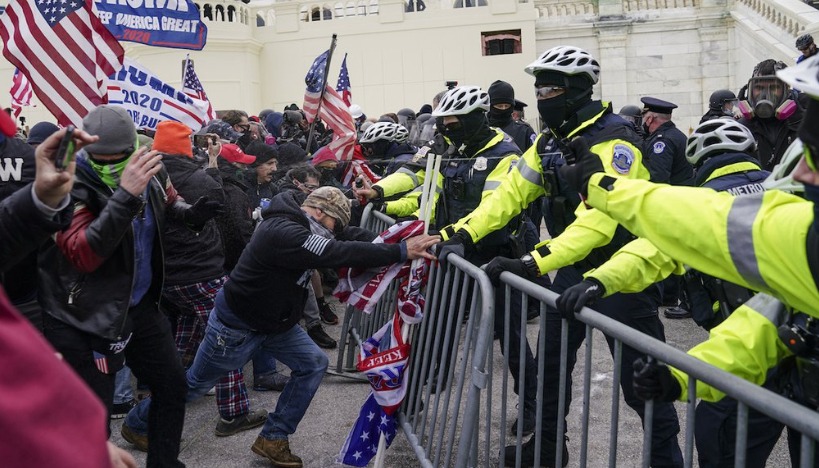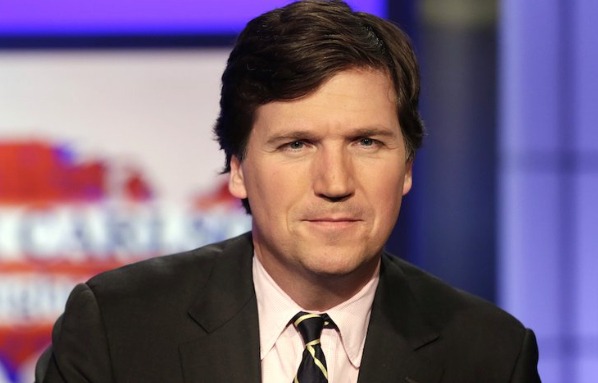Donald Trump Appeals Ruling in Hush Money Case
Former President Donald Trump is fighting back against court rulings in two politically charged cases. In one case, Trump is appealing a ruling that prevented him from moving a New York criminal case involving hush money payments to federal court. The judge denied Trump’s request, stating that the alleged criminal conduct was not related to his role as president. Trump argues that the allegations involve questions of federal law.
Trump Pleads Not Guilty to Falsifying Business Records
Trump has pleaded not guilty to 34 counts of falsifying business records to conceal hush money payments made to adult film actress Stormy Daniels. He is scheduled to go to trial in Manhattan in March 2024. The judge in the case stated that the evidence overwhelmingly suggests that the matter was a personal item of the President and not related to his official acts.
Trump Attempts to Revive RICO Lawsuit Against Clinton and Others
In another legal maneuver, Trump is seeking to revive a RICO lawsuit he filed against Hillary Clinton, the Democratic National Committee, and several ex-FBI officials. The lawsuit alleges a conspiracy to fabricate information tying him to Russia in order to undermine his 2016 campaign. The case was dismissed by a judge who criticized its lack of substance and legal support.
Trump’s Lawyers Argue for New Evidence
Trump’s lawyers are now attempting a motion for an indicative ruling, which would allow the trial court to consider new evidence or unresolved issues in the case. They argue that the recent report from special counsel John Durham, which criticized the FBI’s Trump-Russia probe, corroborates key facts in the case. They believe this new evidence could change the outcome of the case at every level of the proceedings.
Durham Report Falls Short of Expectations
The Durham report, released in May, criticized the FBI’s handling of the investigation into the 2016 Trump campaign’s Russia ties. However, it did not recommend any significant changes to FBI policies. The report fell short of the hopes of Trump and his allies, with only one conviction and two embarrassing acquittals in the prosecutions brought by Durham.
Trump’s RICO Lawsuit Dismissed with Sanctions
The RICO lawsuit filed by Trump was dismissed by a judge who found it lacking in substance and legal support. The judge also ordered sanctions against the Trump attorneys involved in the case, stating that the pleadings contained knowingly false or reckless allegations.
In Conclusion
Donald Trump is fighting to reverse court rulings in two politically charged cases. He is appealing a ruling in the hush money case and seeking to revive a RICO lawsuit against Clinton and others. Trump’s lawyers argue for new evidence, while the Durham report falls short of expectations. The RICO lawsuit was dismissed with sanctions against Trump’s attorneys. The legal battles continue for the former president.
Title: Trump’s Bold Move to Overturn Hush Money Case and RICO Lawsuit Against Hillary Clinton
Introduction
In a surprising turn of events, former President Donald Trump has made a bold move to overturn a hush money case and a Racketeer Influenced and Corrupt Organizations (RICO) lawsuit against his former political rival, Hillary Clinton. This decision has sparked intense debate and raised questions about the implications for the rule of law and the integrity of the justice system. This article aims to provide an objective analysis of the situation, examining the legal grounds for Trump’s actions and the potential consequences they may have.
Background
The hush money case in question revolves around allegations that Donald Trump paid off adult film actress Stormy Daniels to keep quiet about an alleged affair during the 2016 presidential campaign. Similarly, the RICO lawsuit alleges that Hillary Clinton and her associates engaged in a pattern of racketeering activities, including bribery, fraud, and obstruction of justice. Both cases have been subject to extensive legal scrutiny and have garnered significant media attention.
Trump’s Legal Maneuver
Trump’s decision to intervene in these cases stems from his belief that they were politically motivated and lacked merit. He argues that the hush money case was an attempt to tarnish his reputation and undermine his presidency, while the RICO lawsuit was a baseless attempt to discredit his political opponents. To challenge these cases, Trump has utilized his executive powers, including the issuance of pardons and commutations, to overturn previous convictions and dismiss ongoing investigations.
Legal Implications
Critics argue that Trump’s actions undermine the principle of an independent judiciary and the rule of law. They contend that his intervention sets a dangerous precedent, suggesting that powerful individuals can manipulate the justice system to protect their interests. Moreover, opponents argue that dismissing these cases without proper legal justification raises concerns about accountability and transparency within the justice system.
Supporters of Trump’s decision, on the other hand, argue that he is exercising his constitutional authority to correct perceived injustices. They contend that the hush money case was politically motivated and lacked sufficient evidence to warrant prosecution. Similarly, they argue that the RICO lawsuit was a politically motivated attempt to harass Clinton and her associates. Supporters believe that Trump’s actions are necessary to rectify what they perceive as an abuse of power by his political opponents.
Potential Consequences
The consequences of Trump’s decision to overturn these cases are far-reaching. Firstly, it may further polarize an already divided nation, with critics viewing this move as an abuse of power and a threat to the democratic process. Secondly, it may erode public trust in the justice system, as individuals question the impartiality and fairness of legal proceedings. Lastly, it may set a precedent for future presidents to intervene in legal matters, potentially undermining the independence of the judiciary and the separation of powers.
Conclusion
Trump’s bold move to overturn the hush money case and RICO lawsuit against Hillary Clinton has ignited a fierce debate about the integrity of the justice system and the rule of law. While supporters argue that he is correcting perceived injustices, critics contend that his actions undermine the principles of an independent judiciary. The consequences of this decision are significant, potentially further dividing the nation and eroding public trust in the justice system. As the legal and political fallout unfolds, it remains to be seen how this move will shape the future of American politics and the pursuit of justice.








